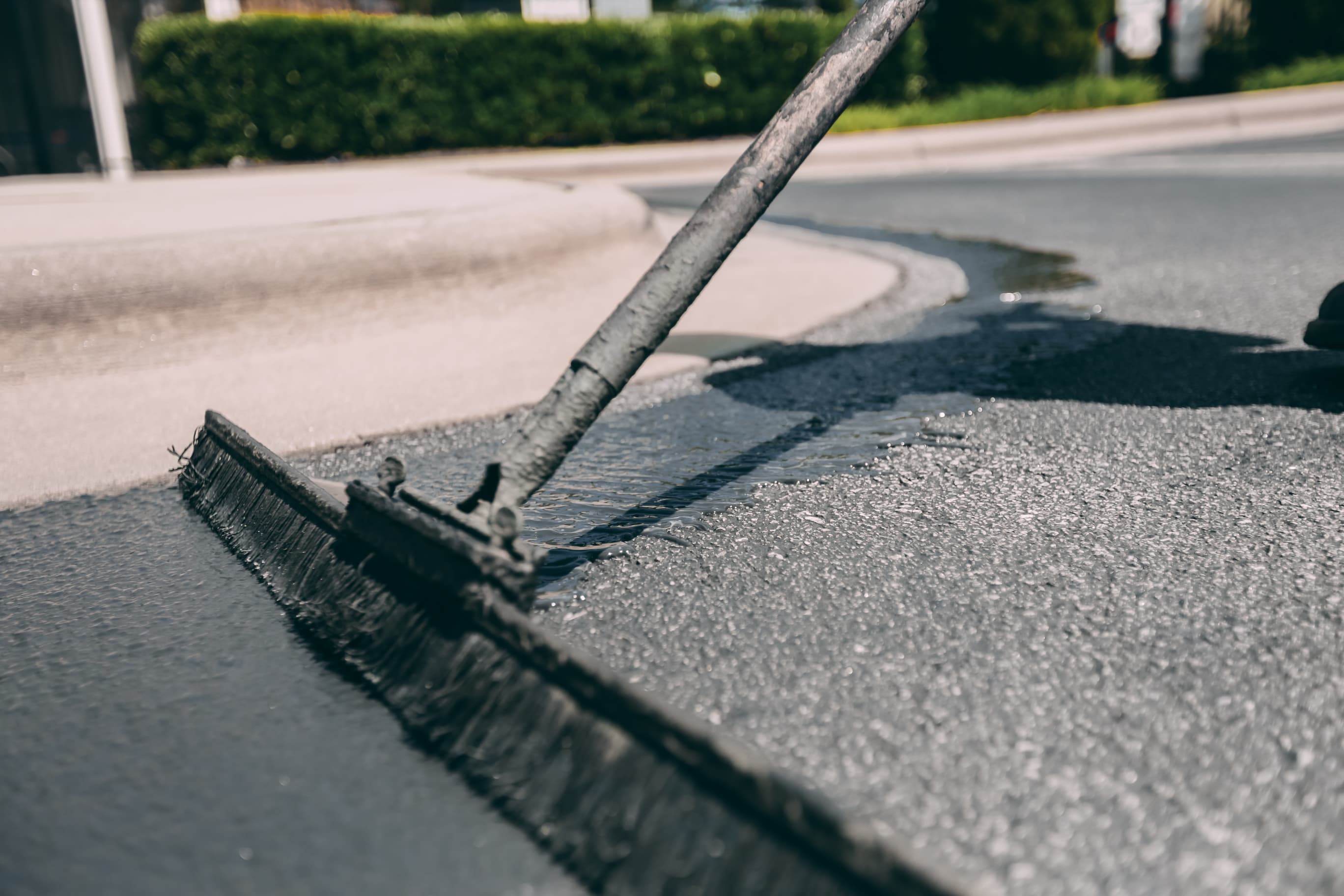Seal in High Quality: Professional Solutions for Asphalt Repair and Sealing
Seal in High Quality: Professional Solutions for Asphalt Repair and Sealing
Blog Article
Cold Mix Asphalt Vs. Hot Mix Asphalt: Which Is Right for You?

Composition Differences
Cold mix and hot mix asphalts differ substantially in their composition, with unique characteristics that influence their performance and applications. Cold mix asphalt is created by emulsifying the asphalt binder with water and an emulsifying representative prior to blending it with accumulation. This approach enables the asphalt to be practical at lower temperatures, making it excellent for short-lived repair work and for use in colder climate conditions. Warm mix asphalt, on the various other hand, is produced at heats, generally between 300-350 ° F, which helps to achieve better compaction and a more resilient final product. The warm mix asphalt production procedure involves warming the aggregate and asphalt binder independently before incorporating them at the asphalt plant.
Furthermore, cool mix asphalt often tends to be much less dense and more versatile than hot mix asphalt. This adaptability makes it much better fit for locations with greater levels of activity, such as driveways or roads with rush hour. On the other hand, warm mix asphalt is recognized for its high durability and resistance to rutting and breaking, making it a favored option for highways and high-traffic roads where longevity is crucial.
Setup Process Variances
The procedure of installing chilly mix and hot mix asphalt exhibits notable differences in their needs and treatments. In comparison, hot mix asphalt necessitates a much more fancy installation procedure. Due to the home heating requirements, hot mix asphalt installments are typically lugged out by experts with customized devices, making sure an extra structurally audio and permanent result.
Longevity and Long Life Elements
When considering asphalt choices, durability and durability are essential factors to examine for long lasting sidewalk efficiency. Warm mix asphalt (HMA) is known for its outstanding durability and longevity.
In regards to long life, HMA typically outshines CMA due to its superior stamina and resistance residential or commercial properties. HMA sidewalks have a longer solution life, needing less constant fixings and maintenance, which can translate to cost savings in the lengthy run. Additionally, HMA pavements are extra conveniently personalized to meet certain job requirements, further enhancing their toughness.
Cost Considerations
Considering the monetary effects is a crucial aspect when assessing the choice in between warm mix asphalt (HMA) and chilly mix asphalt (CMA) for sidewalk projects. While the first cost of warm mix asphalt is usually greater than that of cool mix asphalt, HMA commonly offers an extra economical option in the long run due to its exceptional longevity and durability.
In addition to material prices, it's crucial to think about the expenditures linked with installment and find this maintenance when comparing HMA and CMA. HMA normally needs specialized equipment and proficient labor for appropriate installment, which can influence general project prices. Conversely, CMA is easier to collaborate with and can usually be used making use of easier methods, possibly lowering installation expenses. Ultimately, the decision in between HMA and CMA should take right into account not simply the first cost yet also the lasting monetary effects to figure out the most visit our website cost-efficient choice for the details pavement task.
Environmental Effect Comparison
Comparison of the ecological influences between hot mix asphalt (HMA) and chilly mix asphalt (CMA) reveals distinct differences in sustainability methods. HMA production calls for high temperatures, leading to boosted power consumption and greenhouse gas exhausts.
Moreover, the use of CMA frequently includes reusing existing asphalt pavement, advertising resource conservation and reducing the quantity of waste sent out to garbage dumps. By choosing for CMA over HMA, roadway building jobs can add positively to environmental conservation efforts.
Conclusion
Finally, the option between chilly mix asphalt (CMA) and warm mix asphalt (HMA) relies on various variables such as composition, installation process, durability, durability, expense, and environmental influence. cold mix asphalt. While CMA supplies a fast and economical remedy for small repairs, HMA makes certain superior toughness and longevity for hefty website traffic areas. Consider these aspects carefully to identify which type of asphalt is the ideal choice for your paving requires

Considering the financial ramifications is a crucial element when assessing the choice between hot mix asphalt (HMA) and cool mix asphalt (CMA) for pavement tasks. While the preliminary price of warm mix asphalt is usually greater than that of cool mix asphalt, HMA usually provides a much more affordable option in the lengthy run due to its remarkable resilience and long life. asphalt patch repair.Contrast of the ecological effects between warm mix asphalt (HMA) and cold mix asphalt (CMA) exposes unique differences in sustainability techniques.In conclusion, the selection between cold mix asphalt (CMA) and warm mix asphalt (HMA) depends on various variables such as structure, installment procedure, resilience, long life, expense, and environmental impact
Report this page